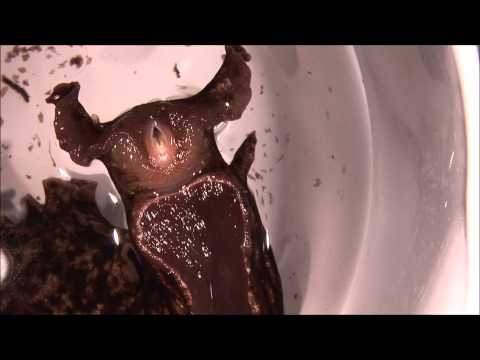It has been almost 10 years now that we have come to the realization that a particular type of our operant experiments can be classified as motor learning. In such “operant self-learning” experiments, the animal learns about the consequences of […] ↓ Read the rest of this entry…
Posts Tagged operant
I was very excited when our latest research paper came out, after all, I was confident our 30-year-long search for the sites of plasticity in the form of motor learning we study was coming to an end. In this work, […] ↓ Read the rest of this entry…
We are looking for a PhD student interested in the functional, molecular and structural profile of neuronal circuits underlying learning, memory and behavior. In a 30-year research effort (lay summary, paper), we have recently identified a new gene (atypical PKC, […] ↓ Read the rest of this entry…
It was my freshman year, 1991. I was enthusiastic to finally be learning about biology, after being forced to waste a year in the German army’s compulsory service at the time. Little did I know that it was the same […] ↓ Read the rest of this entry…
I just sent the poster for this year’s Society for Neuroscience meeting to the printer. As our graduate student is preparing his defense and our postdoc did not get a visa (no thanks, US!), we just have a single poster […] ↓ Read the rest of this entry…
The first conference after the Sars CoV2 pandemic! We’re headed for Paris, France tomorrow and our lab will present two posters, the work of graduate student Andreas Ehweiner and postdoc Radostina Lyutova. Andreas has been working on the cellular and […] ↓ Read the rest of this entry…
The FoxP gene family comprises a set of transcription factors that gained fame because of their involvement in the acquisition of speech and language. While early hypotheses circulated about its function as a ‘learning gene’, a simultaneous “motor-hypothesis” stipulated that […] ↓ Read the rest of this entry…
“Sshh, don’t tell anybody” Professor Troy Zars shushed me: “I have them!”. He was of course referring to fly stocks mutant for the CG16899 gene, now known as FoxP (forkhead box P). While this after-hours discussion took place in 2007 […] ↓ Read the rest of this entry…
Fast object tracking in real time allows convenient tracking of very large numbers of animals and closed-loop experiments that control stimuli for many animals in parallel. We developed MARGO, a MATLAB-based, real-time animal tracking suite for custom behavioral experiments. We […] ↓ Read the rest of this entry…
Tomorrow we travel to the annual meeting of the Society for Neuroscience and our diligent scientists have already printed their posters! Ottavia Palazzo will present her work on genome editing the FoxP locus of Drosophila with anatomical and behavioral characterizations […] ↓ Read the rest of this entry…












